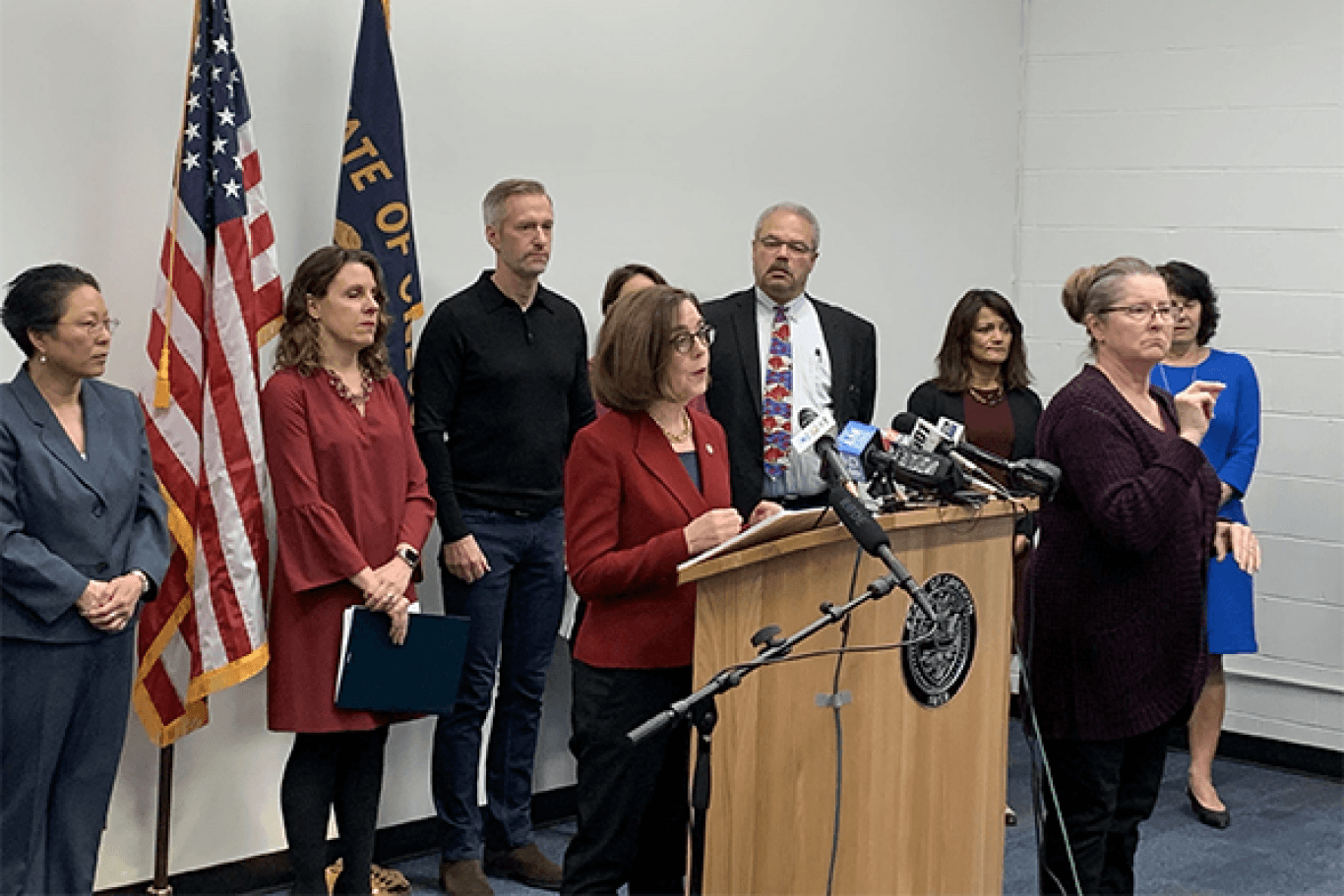A Major Investment in Our Work to #EmergeStronger
A Major Investment in Our Work to #EmergeStronger
by Susannah Morgan, CEO
We’re grateful to Governor Brown’s leadership, to the work of the state’s emergency response center, and to everyone who’s taken action and made a real difference in our shared effort to #Emerge stronger from COVID-19. And yet, we know we’ll need to sustain this high level of community support in the coming months to have any hope of success. Let me explain why.
Our food sourcing and distribution systems are evolving daily as we work to maintain the flow of food and prioritize the health and safety of our community. In some places that means additional shelf-stable foods that are ideal for drive- or walk-through pickups; in others that requires providing new ingredients for delivery-ready meal kits. And we’re seeing a dramatic increase in demand for food across Oregon and Southwest Washington — between 20% and 60% greater, depending on the area.
Add to that a new need to purchase significantly greater quantities of pre-packaged foods. Where we had prioritized our work with farmers to source and distribute fresh fruit and vegetables, we now have to focus greater attention on shelf-stable products that are easy to pack into delivery boxes. Where we once had 100+ volunteers working in a single shift to sort and package pantry staples donated in bulk, we now have no more than 10 people on site at a time to maintain safe social distancing practices. That translates to a big increase in warehouse, transportation and distribution costs — on top of the need to move a significantly greater volume of food and funds to our 21 regional food banks to meet growing needs on the ground.
To break these numbers down, we already distribute over 2 million pounds of food — weekly — to our network of 1,400 local assistance sites. When food is purchased on the open market, as we increasingly have to do in our effort to protect public health, it costs Oregon Food Bank around $1 million each week.
But federal support for these initiatives is still months away. We’re not likely to see food and funds from the recent stimulus packages until closer to July. But job and income losses continue to mount in the meantime. Demand continues to rise. Governor Brown’s substantial investment will help us cover new costs in the interim and keep food flowing to hard-hit communities throughout the region.
Thanks to the generosity of our donor community and strong support from the state’s emergency response team and partners in the food industry, we’re in a strong position to meet this public health crisis head-on. And the economic fallout will last well beyond the necessary social distancing and stay-at-home policies that are currently in place. Many economists are forecasting effects that could last 12 months or longer, even with the recent stimulus. Like any natural disaster, this crisis doesn’t end one day and then life returns to normal. As we’ve seen in Louisiana, Haiti and elsewhere, the hunger, poverty and inequality that existed in our communities two months ago is now deepening and widening as a result of the pandemic. The effects of this crisis will last for years — perhaps a generation or more.
So while we pause to celebrate this important investment, we know we can’t afford to slow down. We need sustained support over the coming months to ensure our network of regional food banks and local food assistance sites can continue to meet the evolving needs of our communities. We need the continued backing of our community of donors, volunteers and activists to maintain momentum and change policies and systems that foster hunger, poverty and other inequities.
Thank you for all you’ve done — and will no doubt continue to do — to help us all #EmergeStronger.
